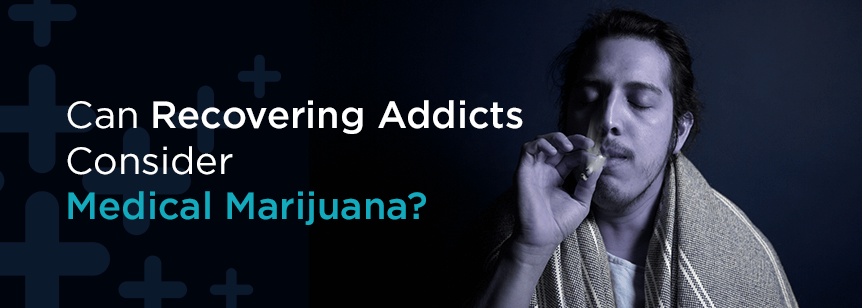
With the opioid epidemic raging, you probably know someone affected by opioids, the class of drugs that includes prescription pain relievers such as oxycodone (Percocet, Oxycontin, Vicodin), synthetic opioids (fentanyl), and (illicit) heroin. Regular opioid use, even when prescribed by a doctor, can lead to addiction and overdoses. Every day, 130 Americans die from opioid use disorder (OUD).
Opioids can be particularly stealthy at changing the structure of the brain to reduce a person’s ability to control substance use, making physical dependency and addiction tough to overcome.
Traditional addiction treatment methods such as an inpatient detoxification program followed by residential group and/or individual psychotherapy focus on helping those recovering from addiction learn to live drug-free. Still, abstinence-based programs aren’t particularly effective; it’s estimated that 40 to 60 percent of users relapse. Setbacks are expected on the road to recovery.
For people unwilling or unable to stop using opioids, however, a harm reduction approach is emerging. The tactic introduces medical marijuana to help opioid users reduce their overall opioid use. The goal isn’t complete drug abstinence but to harness the pain-relieving effect of medical marijuana to help opioid users cut down on opiates and reduce the potential for fatal overdoses.
To manage opioid dependence and prevent relapse, FDA-approved medication-assisted treatments are available, such as methadone, buprenorphine, and naltrexone. These drugs work by acting on opioid receptors in the brain to eliminate withdrawal symptoms and drug cravings without producing euphoria. But these replacement therapies don’t work for everyone and they’re not easy for many patients to access because prescribing providers must obtain credentials from the Drug Enforcement Agency (DEA). Consequently, there aren’t enough providers to meet the growing demand for opioid replacement drugs.
In 2018, three states–New Jersey, New York, and Pennsylvania–passed legislation that allows OUD to be listed as an indication for medical cannabis, with caveats. New York State, for example, allows opioid addicts to use medical marijuana as a replacement “if the patient is enrolled in a certified treatment program.”
Similarly, in Pennsylvania, medical marijuana for OUD is allowed only if patients have tried and failed other conventional treatments and only if it’s prescribed with other interventions. On January 31, 2019, Illinois launched the Opioid Alternative Pilot Program, which gives Illinoisans the option to treat pain with medical marijuana in lieu of opioids.
Meanwhile, many states with an existing medical marijuana program, including Arizona, Massachusetts, Hawaii, Maine, and New Mexico, have rejected adding OUD to the list of qualifying conditions for medical cannabis, citing a lack of scientific evidence for medical marijuana as an effective OUD treatment.
Until we better understand the relationship between medical marijuana and OUD, many states, such as Maryland and Connecticut, continue to grapple legislatively with the issue of adding OUD to their medical marijuana programs. Here’s a rundown of the pros and cons.
Marijuana is a Schedule I drug, just like heroin or ecstasy. According to that classification, marijuana has “no currently accepted medical use and a high potential for abuse.” The drug classification prevents many scientists and researchers from studying the potential for the medicinal uses of marijuana. Detractors argue that there aren’t “gold standard” double-blind, placebo-controlled randomized studies to prove the effectiveness of the harm reduction method for using medical marijuana to combat OUD.
Proponents, on the other hand, argue that medical marijuana is easier to obtain than medication-assisted treatment for OUD and point to the evidence that is available on the positive relationship between medical marijuana and opioid addiction treatment success rates.
A review of research on the role of cannabis in OUD, for example, cites evidence that medical marijuana has the potential to reduce the impact of OUD by reducing opioid withdrawal symptoms as well as consumption and cravings while preventing opioid relapse, improving OUD treatment retention, and reducing overdose deaths.
Another study, which analyzed US medical cannabis laws and state-level death certificates from 1999 to 2010 in all 50 states, found a correlation between medical cannabis laws and significantly lower state-level opioid overdose mortality.
A survey of 244 medical cannabis patients with chronic pain who visited a medical cannabis dispensary in Michigan for two years also found that medical marijuana use was associated with a 64 percent decrease in opioid use and a 45 percent improvement in quality of life. The survey results suggested that these chronic pain patients were substituting medical marijuana to treat their pain, and therefore cutting down on their opioid use.
But the evidence is conflicting. Another study, using mathematical models, found that “cannabis use appears to increase rather than decrease the risk of developing nonmedical prescription opioid use and opioid use disorder.”
Clearly, more research is needed to investigate the harm reduction treatment option for OUD and the concerns surrounding it. Until then, if you live in a state that allows medical marijuana for OUD and opioid addiction is a concern, the risk is yours to take.
You can learn more about the relationship between medical marijuana, opioids, and chronic pain here.
Sandra Gordon is a writer specializing in health and medicine for consumers and physicians. She has written for Everyday Health, Prevention, Healthgrades, Parents, the Cleveland Clinic, NYU Langone Health, Harvard Medical School, Your Teen, WebMD and many more.
No Information on MarijuanaDoctors.Com should be used to diagnose, treat, prevent or cure any disease or condition. You can view our Full Disclaimer here.